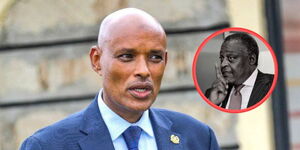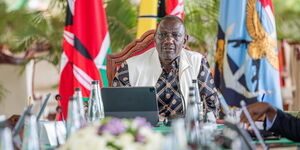Chief Justice Martha Koome has announced a string of measures to improve the speed and efficiency of the Judiciary in resolving court cases.
Koome, who has come under fire in recent months, spoke at the Employment and Labour Relations Court (ELRC) Judges’ Conference on Monday, April 7, where she admitted the Judiciary was struggling in several notable aspects.
Headlining the list of areas of improvement is the speed at which court cases are resolved. According to the CJ, the focus will be shifted to case management as she noted the delays in solving cases were severely eroding public confidence in the Judicial system.
"We meet at a time when the Judiciary has been placed under intense public scrutiny across the country," the CJ noted. "As we are all aware, concern has been raised about timelines and integrity among a few within our ranks."
She added, "For this reason, we are intensifying our focus on improving case management and ensuring that court users are not subjected to delays and administrative inefficiencies."
Koome admitted that frequent adjournments were not just an issue of technical challenges since it was one of the reasons why the public was consistently on the Judiciary's neck, questioning its integrity and competency.
In addition, the CJ, who at some point faced calls to oust her, spoke on the issue of integrity and anti-corruption efforts - an issue that has also hampered the courts' efficiency in handling cases.
Alongside issues of efficiency, Koome admitted they were grappling with renewed allegations of corruption in some of the court stations. These issues, she believes, will be addressed with the establishment of independent committees to tackle graft.
"To reinforce our constitutional integrity, we are rolling out court integrity committees across all court stations," Koome added. "These committees are designed to be inclusive platforms for judges, judicial officers, advocates, EACC representatives, and other stakeholders to share concerns and address unethical behaviour."
This will be the first time in Kenya's history that a committee separate from the government is in place to tackle corruption.
Notably, the Ethics and Anti-Corruption Commission (EACC) will not form part of the committee but will instead play a training and guiding role to fight graft.
The committee was formed after investigations established there were elements lurking in the courts asking Kenyans for bribes, sometimes without the knowledge of judges.












